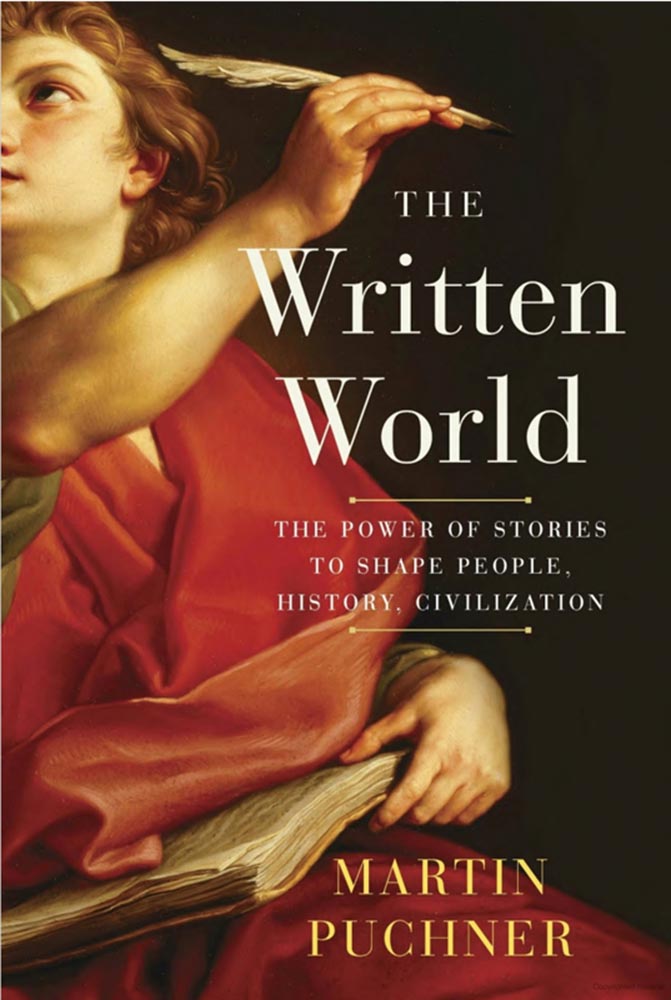Categories
- Graduation
- New Releases
- Oldies but Goodies
- Staff Favourites
- Staff Picks - Biographies
- Staff Picks - Canadian
- Staff Picks - Children's Books
- Staff Picks - Cookbooks
- Staff Picks - Cool Books
- Staff Picks - Creative Books
- Staff Picks - History Books
- Staff Picks - Home & Health
- Staff Picks - Ideas & Inspiration
- Staff Picks - International
- Staff Picks - Mystery & Thrillers
- Staff Picks - Poetry Books
- Staff Picks - Science & Nature
- Staff Picks - Short Stories
- Staff Picks - Teen Books
- Staff Picks - Tween Books
- Uncategorized
Showing the single result
The Written World by Martin Puchner
The story of how literature shaped world history, in sixteen acts—from Alexander the Great and the Iliad to Don Quixote and Harry Potter
In this groundbreaking book, Martin Puchner leads us on a remarkable journey through time and around the globe to reveal the powerful role stories and literature have played in creating the world we have today. Puchner introduces us to numerous visionaries as he explores sixteen foundational texts selected from more than four thousand years of world literature and reveals how writing has inspired the rise and fall of empires and nations, the spark of philosophical and political ideas, and the birth of religious beliefs. Indeed, literature has touched the lives of generations and changed the course of history.
At the heart of this book are works, some long-lost and rediscovered, that have shaped civilization: the first written masterpiece, the Epic of Gilgamesh; Ezra’s Hebrew Bible; the teachings of Buddha, Confucius, Socrates, and Jesus; and the first great novel in world literature, The Tale of Genji, written by a Japanese woman known as Murasaki. Visiting Baghdad, Puchner tells of Scheherazade and the stories of One Thousand and One Nights, and in the Americas we watch the astonishing survival of the Maya epic Popol Vuh. Cervantes, who invented the modern novel, battles pirates both real (when he is taken prisoner) and literary (when a fake sequel to Don Quixote is published). We learn of Benjamin Franklin’s pioneering work as a media entrepreneur, watch Goethe discover world literature in Sicily, and follow the rise in influence of The Communist Manifesto. We visit Troy, Pergamum, and China, and we speak with Nobel laureates Derek Walcott in the Caribbean and Orhan Pamuk in Istanbul, as well as the wordsmiths of the oral epic Sunjata in West Africa.
Throughout The Written World, Puchner’s delightful narrative also chronicles the inventions—writing technologies, the printing press, the book itself—that have shaped religion, politics, commerce, people, and history. In a book that Elaine Scarry has praised as “unique and spellbinding,” Puchner shows how literature turned our planet into a written world.
Showing the single result

